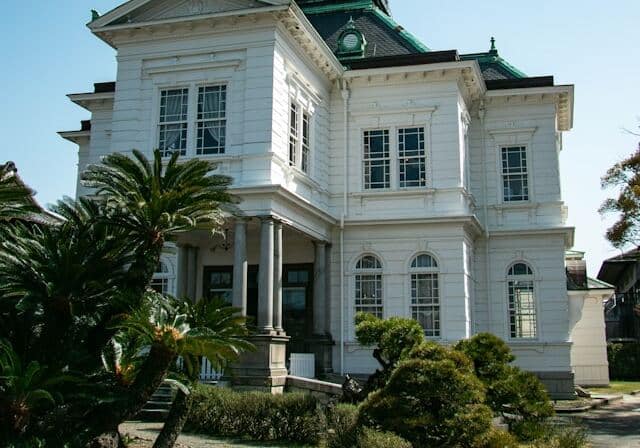Updated: June 24, 2025
The Non-Habitual Residence or NHR Portugal program was a tax residency status that offered significant advantages. Introduced by the Portuguese government in 2009, the scheme allows individuals to be exempt from paying taxes on global income for ten years.
With the aim of attracting foreigners to Portugal, with more than 10,000 NHR residents enjoying tax advantages under the program, the NHR came to an end on 31 March 2025.
The program has been replaced by the Tax Incentives for Scientific Research and Innovation (IFICI), also known as the NHR 2.0.
This comprehensive guide to the NHR Portugal 2.0., provides information about eligibility criteria, benefits, and more.
Portugal’s NHR Program: A Timeline of Events
- October 2023: The Portuguese Prime Minister made an announcement to end the NHR Portugal regime in 2024.
- January 2024: The end of the original NHR regime was proposed by the State’s Budget Proposal.
- March 2024: 2023 Registered tax registered in Portugal who had not been taxed in Portugal in the past five years could apply for the original NHR program by 31 March 2025.
- March 2025: Some individuals could apply for the original NHR program until 31 March 2025, with more specific eligibility requirements.
What was the original NHR Portugal?
The Portugal NHR program was launched in 2009 to attract foreigners to Portugal and boost the Portuguese economy, offering individuals reduced tax rates.
In certain cases, the program granted a 20 percent tax rate on income and allowed tax exemptions on pension income. More than 10,000 NHR tax residents benefitted from the program. As a non habitual resident in Portugal, there were several key advantages.
Original NHR Benefits
- You become a tax resident in Portugal
- Enjoy special tax benefits for a ten-year period when paying taxes
- No wealth tax
- Free remittance of funds to Portugal
- Tax exemption on foreign income
- 20 percent flat tax on some Portuguese income
- Tax exempt on gifts for family members
- No minimum stay requirement
End of the Original NHR Program

As such, the State Budget Law for 2024 determined the end of the NHR regime.
By the end of March 2025, the program closed completely to new applicants.
However, individuals who had already registered under the program before this date would be able to take full advantage of the program under the existing terms for the ten-year period.
What has replaced the NHR in Portugal?
The new NHR Portugal 2025 tax regime, known as the NHR 2.0., is called the Fiscal Incentive for Scientific Research and Innovation (IFICI) Program. The scheme is a ten-year tax-incentive program for highly qualified professionals who are moving to Portugal.
Under the new program, you will be subject to a special 20 percent personal income tax rate. While IFICI has some similarities to the original NHR program, there are some crucial differences to the program.
Stay Up to Date on the Latest Developments
Alongside our residency and citizenship division, Global Citizen Solutions, we will keep you up to date on the latest developments. Should you be looking to see how to get Portuguese residency, reach out to them, and they will be able to discuss which residency option is best suited to your needs.
Introducing NHR 2.0 (IFICI): The New Regime for 2025 Onwards
The new Portugal NHR 2.0 tax regime 2025 (IFICI) aims to attract qualified professionals and entrepreneurs in key economic sectors, such as science, technology, innovation, and education, offering reduced tax rates on Portuguese income and exemptions on certain foreign-sourced income.
What are the benefits of the New NHR Portugal Program (IFICI)?

- Portuguese sourced income: 20 percent flat rate on Portuguese source employment and self-employment income (usually standard progressive rates of up to 48 percent apply for high earners). This 20 percent rate applies regardless of income level and applies to income from eligible activities performed for qualifying Portuguese entities.
- Foreign-sourced income: 0 percent taxation on all foreign-sourced income, which includes:
- Foreign employment and self-employment income
- Foreign investment income, such as royalties, dividends, and interest
- Foreign capital gains, such as sales of crypto assets, securities, etc.
- Income from intellectual property
- Foreign rental income
- Greater tax efficiency in asset allocation between foreign and Portuguese investments
- Grants benefits to digital nomads, remote workers, entrepreneurs, and professionals operating across countries
- Allows tax-free growth for a ten-year period
Who qualifies for the New NHR Program (IFICI) in 2025
To be eligible for the Tax incentive for the Scientific Research and Innovation program, the requirements are as follows:
- Must hold academic qualifications or have three years experience (minimum) in a qualifying field
- Must be a tax resident in Portugal and not have been a Portuguese tax resident for the previous five years
- Cannot already be enrolled in the original NHR Portugal tax regime or any other special tax regime scheme
The main differentiator between the original NHR program and the Tax Incentive for Scientific Research and Innovation is that individuals will need to earn income from certain professional categories.
Eligible professional categories

- Teachers and scientists
- Those in qualified jobs, as specified in the Tax Code
- Activities carried out within the scope of the extractive industry and manufacturing industries
- Tourism, including activities that are of interest to tourism
- IT and related activities and services
- Agricultural, aquaculture, fish farming, farming and forestry activities
- Research and development, in addition to high technological intensity activities
- Audiovisual and multimedia production
- Defense, environment, and energy
- Telecommunication and activities of shared service centers
- Highly qualified professionals: This refers to individuals or entities engaged in one or more of the activities mentioned above within a qualifying organization.
- Members of corporate bodies that carry out economic activities
- Those employed by companies that are recognized by relevant government agencies, such as AICEP, EPE, IAPMEI, and IP, or that are relevant to the national economy (e.g., working with investment, etc.)
- Research and development personnel who meet the definitions of the tax code
- People working for startups, certified by law as such
- Individuals who work in Madeira or the Azores and meet the criteria set by these regions
How to Apply for the NHR Portugal 2.0. Portugal: Step by Step Guide
Applying for the Portugal NHR 2.0. (IFICI) It is similar to the old NHR program.
- Step 1: Gain Portuguese tax residency. For this, you will need to spend more than 183 days in Portugal within a one-year period or maintain a habitual residence in Portugal that demonstrates your intent to stay long-term.
- Step 2: Register with Finanças, the Portuguese Tax Authorities (AT)
- Step 3: Get a Portugal NIF number, your personal tax identification number
- Step 4: Update your tax address to your Portuguese residence
- Step 5: Once you are a resident of Portugal and have your NIF number, submit a formal request through the Portal das Finanças (Portugal’s online tax portal).
Application for NHR 2.0.: Documents
- Provide documents to show eligibility
- Provide proof that you have not been a tax resident of Portugal in the past five years
- Documentation providing academic qualifications or at least three years of professional experience in a qualifying field
- Proof of employment or self-employment in a qualifying activity (such as an employment contract, startup registration, or academic appointment)
Difference between NHR and IFICI
Aspect | NHR (Non-Habitual Resident) | IFICI (Tax Incentive for Scientific Research and Innovation) |
Eligibility | Open to most who moved to Portugal, with few conditions | Only for highly qualified professionals in specific fields |
Professional Fields | No specific requirement | Must work in science, tech, innovation, or education |
Activity Requirement | No requirement to actively work in a specific field | Must actively work in an approved activity each year to keep the benefit |
Tax on Portuguese Income | 20 percent flat rate | 20 percent flat rate |
Foreign Income | Full or partial exemptions, including pensions | Exemptions apply only to eligible income, with stricter conditions |
Scope of Application | Uniform across all of Portugal | Madeira and Azores can define their own eligible jobs or activities under the regime |
Stay Up to Date on the Latest Developments
Alongside our residency and citizenship division, Global Citizen Solutions, we will keep you up to date on the latest developments. Should you be looking to see how to get Portuguese residency, reach out to them, and they will be able to discuss which residency option is best suited to your needs.
Goldcrest: How We Can Help You
Goldcrest is a buyer’s agent that is based in Lisbon. We provide expert, impartial advice on real estate investments and how to buy property in Portugal. From scouting out the perfect property through to property acquisition, we have you covered throughout the process.
If you are looking to purchase property in Portugal, don’t hesitate to get in touch. Our team of skilled experts is available to solve all your real estate doubts, helping you with the property search and offering insightful expertise and strategic advice.
Why choose Goldcrest?
- Local knowledge: With offices located across Portugal, our presence nationwide allows us to assist you personally across the country.
- Independent service: As an independent buying agent, we do not represent any development or project. Our service is entirely tailored toward each individual client, providing you with everything you need to secure the perfect property at the best possible price. As an impartial advisor on the market, we work solely on behalf of our client and provide a service tailored to your needs and requirements.
- Streamlined process: Our real estate agents speak English and Portuguese, and our service is completely focused on providing you with a hassle-free buying experience, saving you time.
- Experienced team: Our expert real estate team has a vast local knowledge of the Portuguese property market. We have cutting-edge technology and metasearch tools at your disposal to provide full market coverage, ensuring the best investment choices and negotiated prices.
- Network of partners: We have a close network of partners, including lawyers, property management services, builders, architects, designers, and landscape gardeners, again saving you time and hassle by providing you with trusted experts in their field of work.
Frequently Asked Questions about the NHR 2.0
Is the Portugal NHR ending?
Yes, the Non-Habitual Residency (NHR) program has ended.
The program has been succeeded by the Tax Incentive for Scientific Research and Innovation Program, offering comparable advantages but to a more limited segment of expats.
What is the new NHR for Portugal 2024?
The Tax Incentive for Scientific Research and Innovation Program is the Portugal new NHR scheme. To apply for the new program, individuals will need to generate income in specific professional fields like teaching, scientific research, and development to qualify. Under this program, there’s a uniform tax rate of 20 percent applied to professional employment income and self employment income earned within Portugal, alongside exemptions on most foreign-derived income types like dividends, interest, capital gains, and rents.
What will replace NHR Portugal?
The Tax Incentive for Scientific Research and Innovation Program (IFICI) has replaced the original Non-Habitual Resident (NHR) regime and is commonly known as ‘NHR 2.0 Portugal’.
What is the tax rate for non-residents in Portugal?
Non-residents in Portugal are generally taxed at a flat rate of 25 percent on income earned in Portugal, such as salaries or professional fees.
What is the Beckham law in Portugal?
The “Beckham Law” is actually a Spanish tax regime allowing non-residents who move to Spain for work to elect to be taxed as non-residents for a period, benefiting from lower flat rates on Spanish-sourced income. There is no direct equivalent “Beckham Law” in Portugal; however, the NHR regime served a similar purpose by offering significant tax benefits, and has been replaced by IFICI, which also provides tax advantages to qualifying applicants.
Who qualifies for NHR in Portugal?
The NHR regime is no longer available for new applicants since January 1, 2024. Previously, it was for individuals who became tax residents in Portugal after not being a tax resident for the preceding five years and who applied by March 31 of the year following their residency. IFICI has replaced the NHR program and is often known as the NHR 2.0. providing benefits to new tax residents in Portugal in specific qualified jobs.
What is the NHR tax benefit in Portugal?
The Non-Habitual Resident (NHR) program in Portugal was a special incentivised tax status program for new residents in Portugal, who could enjoy generous tax exemptions and where the income they earned in Portugal was taxed at a flat rate of 20 percent. The old NHR tax regime has been replaced by IFICI.
Benefits of IFICI include a special 20 percent personal income tax rate for those in specified qualified jobs. To be eligible, you must be a new tax resident in Portugal.
Is Portugal getting rid of NHR?
Yes, Portugal effectively got rid of the NHR regime for new applicants starting January 1, 2024, but the new NHR 2.0. (IFICI) is open and accepting new applicants.
Can US citizens apply for NHR?
When it comes to the Portugal NHR program for US citizens, while the original program has ended, Americans can apply for the NHR 2.0. (IFICI), which has replaced the old NHR scheme.
Can a UK citizen apply for NHR?
While the original NHR tax regime has ended, the program has been replaced by IFICI (NHR.2.0). Anyone who meets the requirements can request NHR 2.0. status, including UK citizens.
Do I have to be resident outside of Portugal to be a non-habitual tax resident NHR?
No, you can live in Portugal, but you must not have been a taxable resident for five years prior to your application. The NHR program has ended and been replaced by IFICI (NHR 2.0.), but this criteria remains.
Can remote workers and digital nomads benefit from NHR?
The original NHR program has ended. However, IFICI (NHR 2.0.) has taken its place, and remote workers and digital nomads can benefit from the new program, provided they meet the criteria.
What if my income is paid in another country?
Under the NHR regime (for those still benefiting), foreign-sourced income like pension income, dividends, and capital gains was often tax exempt from Portuguese tax if taxed in the source country under a Double Taxation Agreement (DTA).
When is the best time to apply for the Portuguese NHR tax regime?
The original NHR program has ended and has been replaced by IFICI (NHR 2.0.)
Can applications for non-habitual residency in Portugal be tracked?
Yes, once an application for NHR was submitted through the Finanças (Portuguese Tax Authority) portal, applicants could typically track its status online. The old NHR program has ended and been replaced by IFICI, but, if you are registered on the Finanças portal, you can still track the status online.
How do you know if registration as a Portuguese non-habitual resident has been accepted?
For the old NHR regime, to check your NHR application status, log in to the Finanças portal. Navigate to “Aceda aos Serviços Tributários,” then “Consultar Pedido,” and select “Inscrição Residente Não Habitual.”
What happens after 10 years of NHR in Portugal?
After 10 years under the NHR regime, individuals revert to Portugal’s standard tax rules. Their worldwide income will then be subject to progressive Portuguese income tax rates, and they will lose the NHR specific exemptions and flat rates.
Do I have to make a statement of assets to apply for the NHR regime?
No, you only need to state your income on your tax returns. In your tax returns, report your worldwide income and any foreign bank account you own to the Portuguese tax authorities.
How long has the Non Habitual Resident NHR regime in Portugal been available?
The Non Habitual Resident regime or NHR was introduced in Portugal in 2009. It was in effect for new applicants until December 31, 2023. The program has been replaced by IFICI (NHR 2.0.)
Is it possible to backdate my registration as a non-habitual tax resident?
The NHR program has ended and been replaced by IFICI, the NHR 2. 0..